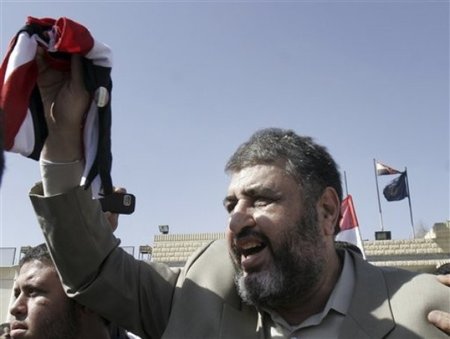
With the first of Rep. Peter King's (R-NY) hearings on the radicalization of Islam scheduled to occur this week, on Sunday Lorenzo Vidino of the Rand Corporation took to the pages of the Washington Post to detail what he tabs as "five myths about the Muslim Brotherhood." Yet in reading the piece, it's hard to imagine this was the title Vidino chose - each "myth" is more of a "yes, but" contextual clarification; far short of factual inaccuracy.
Is it fair to say that the Brotherhood is a global organization? That just depends on what your definition of "organization" is - perhaps "alliance of like-minded collaborators who share money, information, and resources across more than eighty nation-states" is not your definition of a "global organization." How close and how recent do ties to al-Qaeda have to be to raise concerns? Portions like "This is not far-fetched, yet ..." and "Historically, yes. But ..." are a good sign that it's simply unfair to call items such as "The Brotherhood seeks to impose a draconian version of sharia law" myths - in Egypt, at least, that is simply a fact.
One myth which I'd suggest Vidino's piece persists in deploying is a typical view of the generational divide between old and new guard on questions of radical Islam. In reality, the differences are more complex, and the young voices for radicalism are often the most violent - a piece about Alexandria in the 1960s in this weekend's Wall Street Journal drives the point home:
Colette Frege Haggar remembers how, in the 1960s, she would slip on a bikini and walk down Alexandria's streets to join the other bikini-clad women at her local beach.Now, women in this Egyptian city almost universally wear head coverings - and increasingly, Ms. Frege and others say, they wear niqabs, the black shroud-like garments with slits for the eyes. If women go to a public beach, they usually do so in head-to-toe dress.
Ms. Frege, a 56-year-old Catholic of Lebanese-Italian descent, has watched her city morph from the Middle East's most cosmopolitan city to one of its Islamist strongholds. The question is what comes next: a return to the more liberal polity of her youth or a fundamentalist entrenchment.



